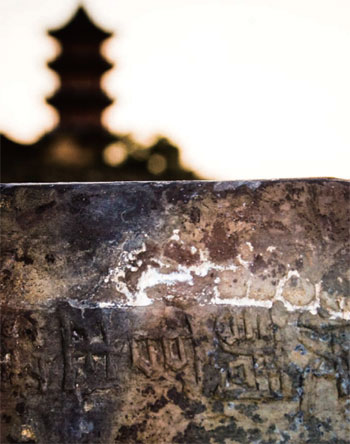Life on the Water's Edge: The Culture and History of the Qinhuai River
Cities of China
The China International Publishing Group's Foreign Languages Press is currently publishing the "Cities of China" series. I believe this is very timely move, and one of great significance.
The Ancient Greek philosopher Aristotle once said, "Men come together in cities in order to live; they remain together in order to enjoy life."
In 1800, only two percent of the world's population lived in cities. By 2007, this rate had soared to over 50 percent. The UN predicts that by 2010 urban dwellers will make up 55 percent of the world's total population. Today, the pace and scale of urbanization, which is unprecedented in the history of humanity, indicates that the world is entering a new era.
The steady rise of a group of developing countries represents one of the most striking trends in international relations of this century. The population of these countries adds up to over half of the world's total population. The level of change and the number of countries involved are also unprecedented in human history.
All the countries concerned share one common feature, that is, they are going through a simultaneous process of industrialization and urbanization. In the context of the rapid and extensive urbanization, due attention must be paid to the challenges the cities face.
In this regard, the theme "Better City, Better Life" of the 2010 World Expo Shanghai, China, responds to the tide of human development. It is the first time in the World Expo history that the city becomes the theme, as confirmed by the support from the Bureau of International Exhibitions (BIE) members.
The "Cities of China" series is characterized by a foreign perspective on China's cities. As the world's oldest civilization with an uninterrupted history going back thousands of years, China boasts a profound urban culture which constitutes an important component of its civilization. The world's first city with a population of half a million was Linzi in China, and the world's first city with a one million population, Chang'an (today's Xi'an), was also in China. Today, fast-developing cities of all sizes are scattered throughout the country. Among them, metropolises like
Beijing and Shanghai are well-known throughout the world while smaller ones, though less known, have their own charms. They are the focus of the "Cities of China" series. New and dynamic cities like Nanjing, Kunshan, Nantong and Wuxi covered by this series will help the readers know better China's urbanization and development.
The books in this series are written by foreign writers familiar with an English speaking readership. They show the important aspects of Chinese cities and their cultures.
The past 100 years have witnessed many twists and turns in China's revolution and rebuilding. There was a period in which we severely criticized and even negated our own culture. Now, however, with China's rise, our people are becoming ever more appreciative of their own culture and are trying to rediscover it. The "Cities of China" series is designed to assist with this process. People from other countries have a perspective that is quite different from our own. They are more likely to notice the things that we take for granted and overlook. As a Chinese idiom says,
"Advice from others may help one overcome one's shortcomings." An outsider's view of China's cities can give us a broader picture of our own urban culture. Western culture has made great contributions to the world. Without it, we would not have been in a position to enjoy our material wealth and our rapidly-developing science and technology.
The whole world has something to learn from Western culture. But, we also have to realize that Western culture, like any other culture, has its own weaknesses. While it has certainly driven human civilization forward, it has brought with it many problems. Over the past few centuries, the world has been dominated by Western culture, and the Eastern contributions have been overlooked. In the 21st century, it is time once again for Eastern culture to make its presence felt. The "Cities of China" series can help the world to better understand and learn from the East, and thereby find solutions to the problems created by and faced by all our cities.
The Shanghai World Expo in China is a great event for human civilization. The publishing of this series will make a significant contribution to the World Expo movement.
I wish it great success!
Wu Jianmin
Honorary President of the Bureau of International Exhibitions
April 2010, Beijing
 0
0 







